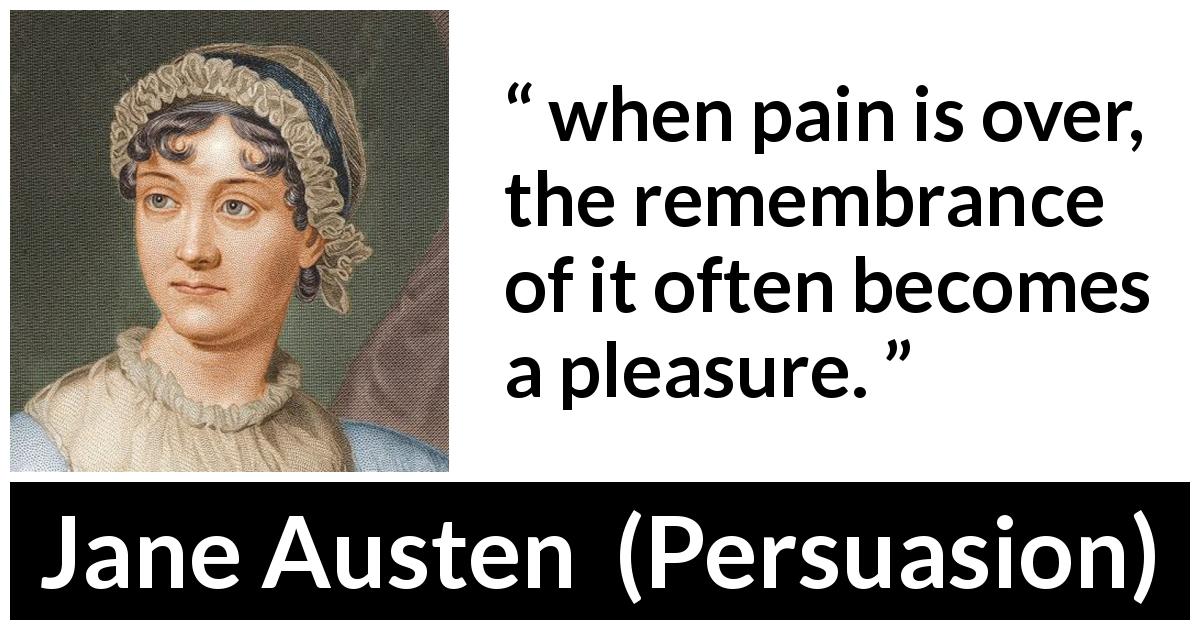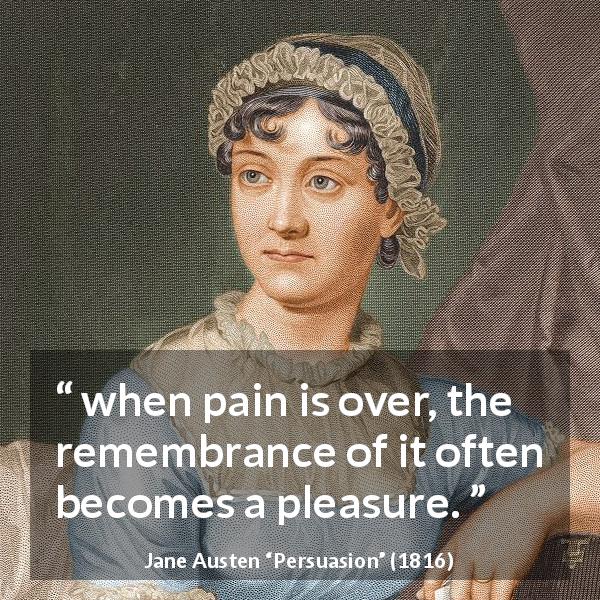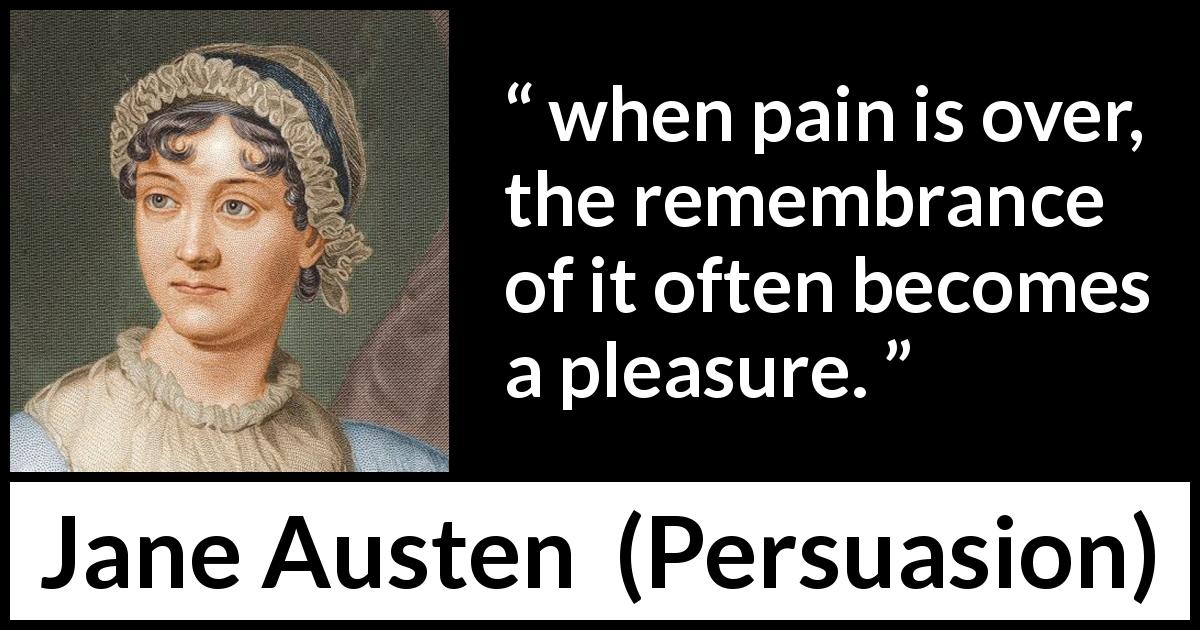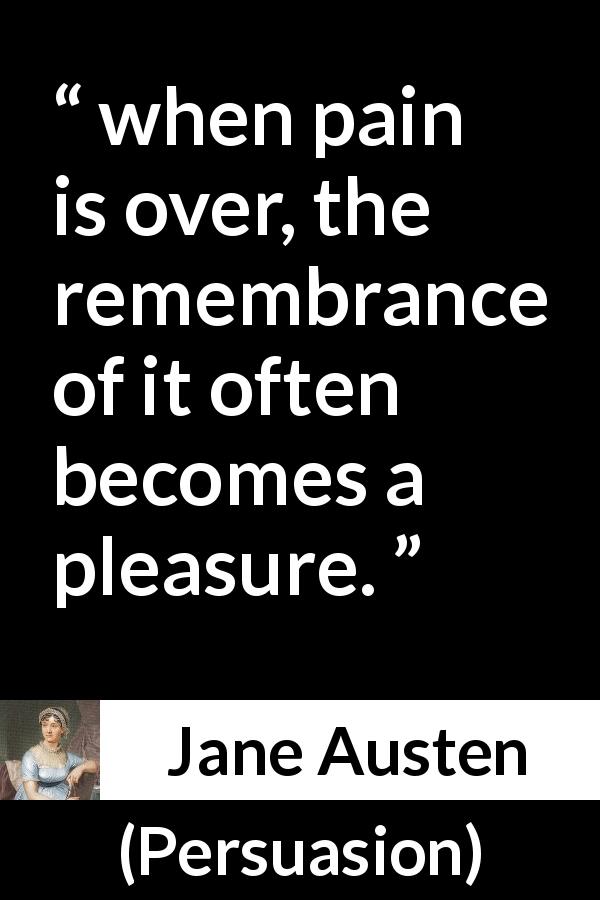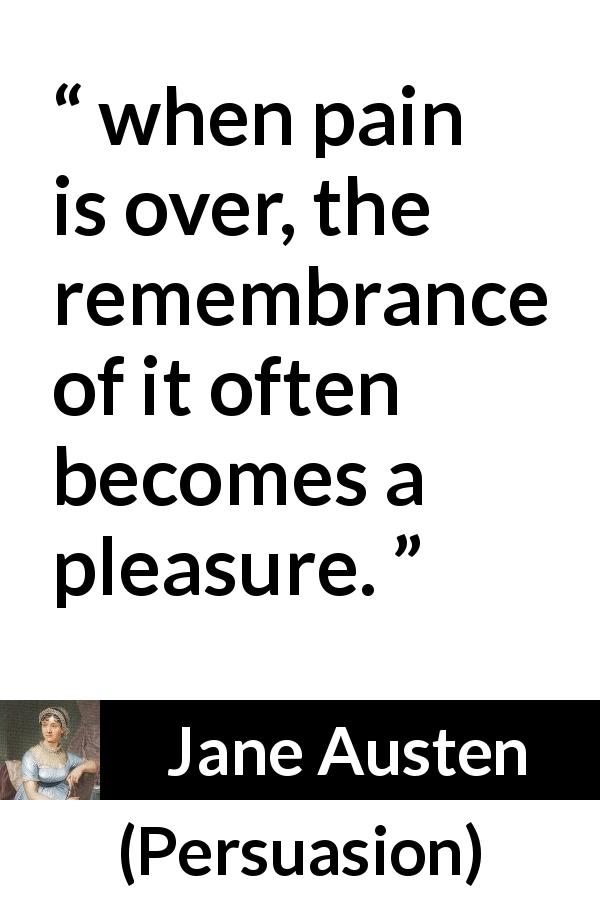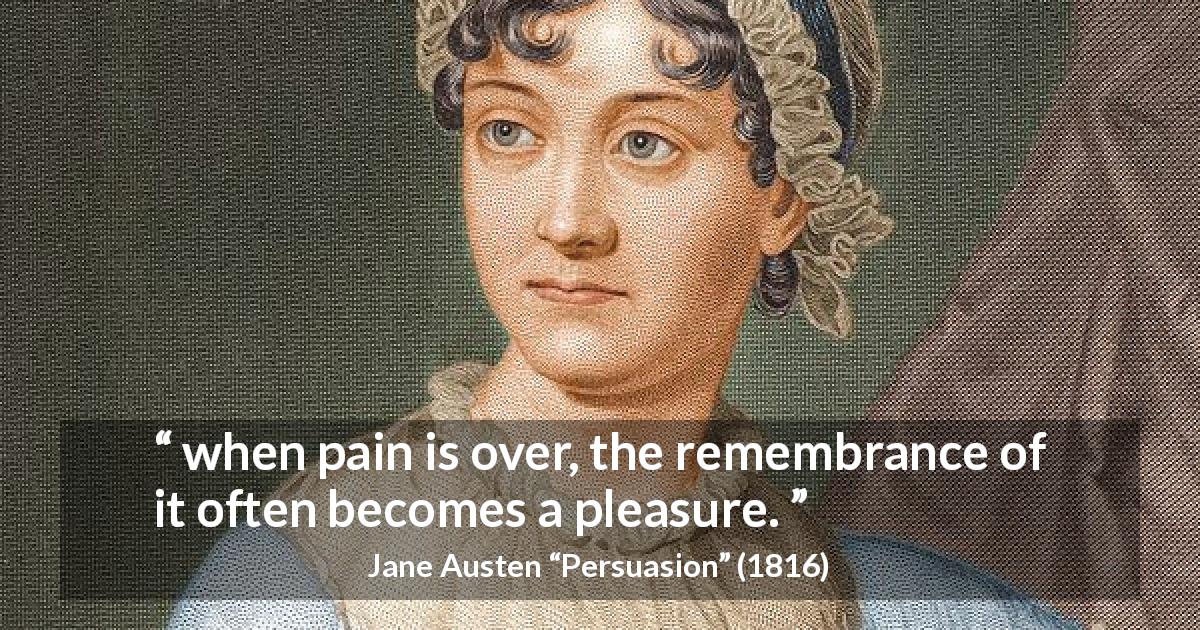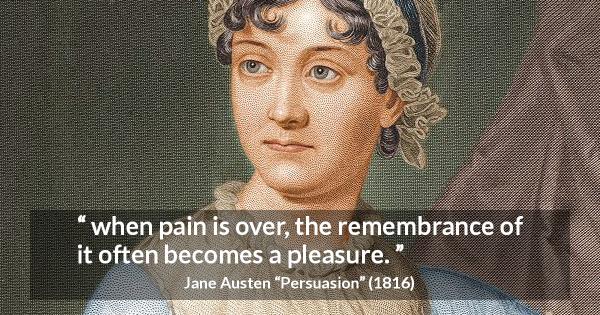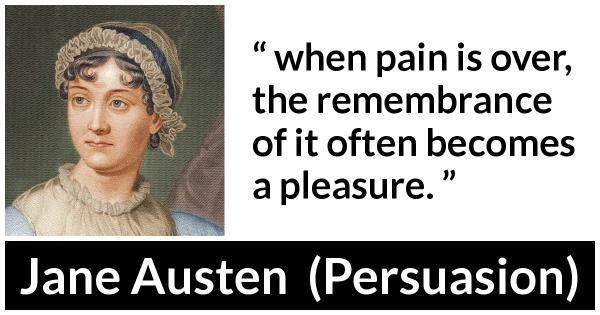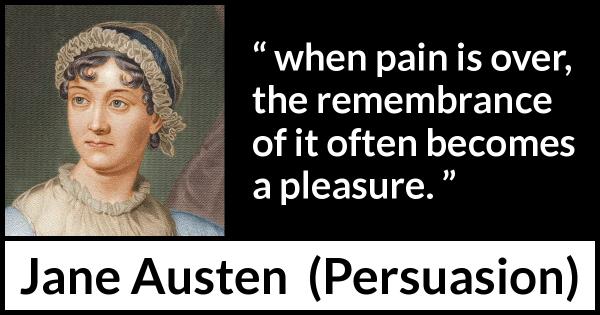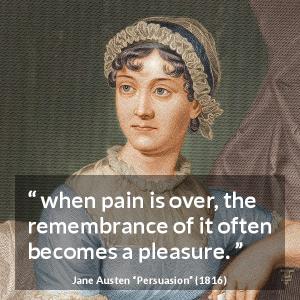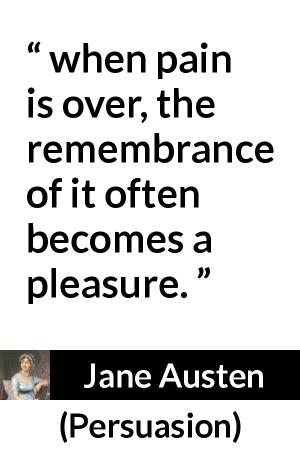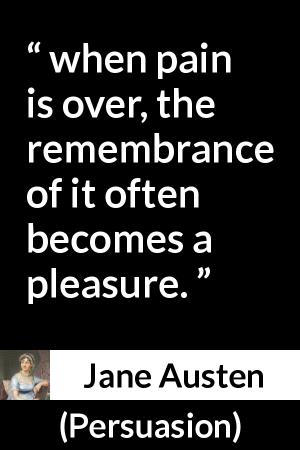“ when pain is over, the remembrance of it often becomes a pleasure. ”
Jane Austen, Persuasion (1816). copy citation
| Author | Jane Austen |
|---|---|
| Source | Persuasion |
| Topic | pleasure pain memory |
| Date | 1816 |
| Language | English |
| Reference | |
| Note | |
| Weblink | http://www.gutenberg.org/files/105/105-h/105-h.htm |
Context
“I should not have supposed that you could have found anything in Lyme to inspire such a feeling. The horror and distress you were involved in, the stretch of mind, the wear of spirits! I should have thought your last impressions of Lyme must have been strong disgust."
"The last hours were certainly very painful," replied Anne; "but when pain is over, the remembrance of it often becomes a pleasure. One does not love a place the less for having suffered in it, unless it has been all suffering, nothing but suffering, which was by no means the case at Lyme. We were only in anxiety and distress during the last two hours, and previously there had been a great deal of enjoyment.” source
"The last hours were certainly very painful," replied Anne; "but when pain is over, the remembrance of it often becomes a pleasure. One does not love a place the less for having suffered in it, unless it has been all suffering, nothing but suffering, which was by no means the case at Lyme. We were only in anxiety and distress during the last two hours, and previously there had been a great deal of enjoyment.” source
